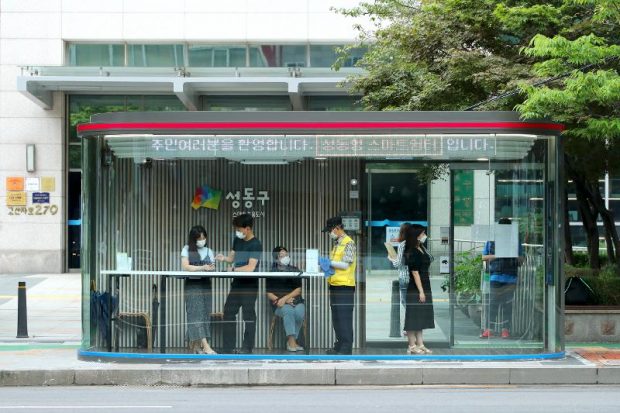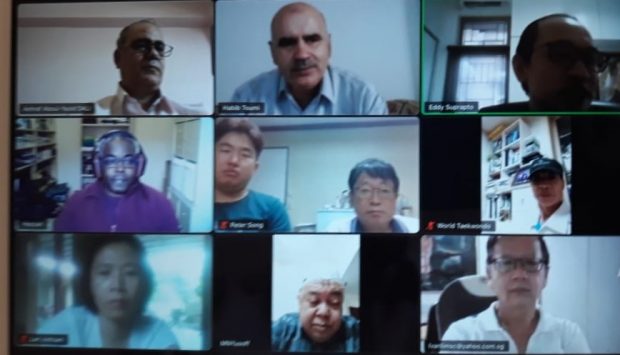
Seoul’s virus-blocking bus stops highlighted at AJA meeting

SEOUL: For Peter Song, South Korea’s latest high-tech front in the battle against airborne viruses, fine dust, snow and rain is an expected step from a country that has leveraged technology successfully to ensure the safety and wellbeing of its people and residents.
Korea has installed fortified bus shelters in the capital Seoul with temperature-checking sensors and ultraviolet disinfection lamps.
“The bus stops have been designed to protect people from both heat and the deadly virus,” Peter said as he highlighted the unique experiment of his country at a meeting of the Asian Journalists Association (AJA).

The meeting, held online across seven time zone, brought together media figures from 11 countries – Korea, Indonesia, Malaysia, Singapore, Vietnam, Cambodia, Bahrain, Yemen, Egypt, France and Germany.
Passengers are not allowed into the glass shelter until an automated thermal-imaging camera checks that their temperature is below 37.5 degrees Celsius. If they have the right temperature, the door will slide open. For the sake of children, a separate camera is installed at a lower height.
The smart shelter provides ultraviolet light sterilizers to clean and cool the air, free Wi-Fi and phone charging and beams thanks to an intelligence surveillance camera the image of the bus approaching the bus station on a digital screen installed inside.
Emergency back-up power is provided when regular power is interrupted by a solar panel on the roof.
Peter’s personal experience with the shelter was a delight, he added.
“I have personally seen and experienced this service and I was surprised to know that I was in the safe spot without going through numerous health checkups,” he said.
According to officials, Korea has so far installed 10 smart bus shelters in Seoul.

For the Britain-educated Peter, the latest Korea bus stop breakthrough should be emulated worldwide.
“I look forward to world leaders assessing the idea in the age of COVID-19.”
The situation of the fight against COVID-19 in the various member states and the media’s coverage of the virus have been a regular topic in the meetings that span across seven times zones.


